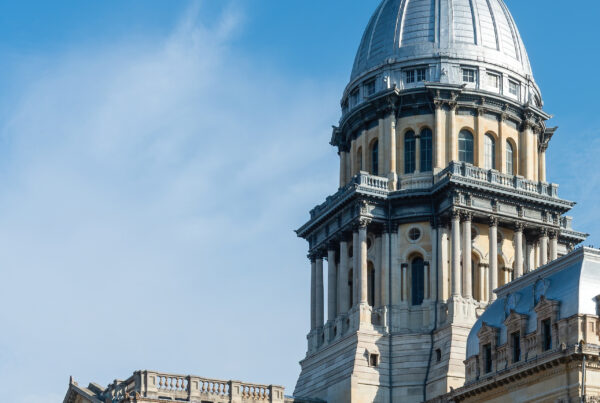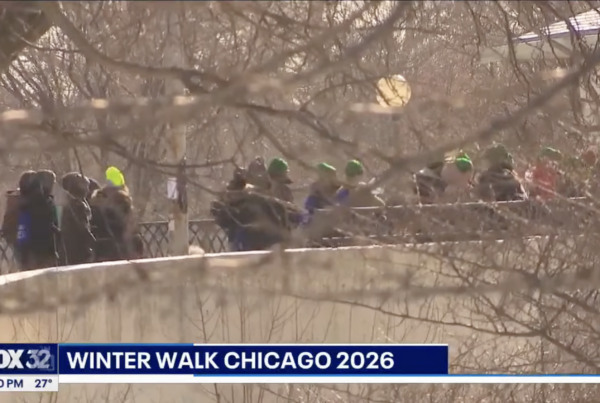Hotel used to “shield” medically at-risk homeless people from virus is operating at capacity.
By Mark Brown, columnist
Robert Ewaniuk has been staying at a West Side homeless shelter operated by Franciscan Outreach for a little more than a week, during which he’s been tested twice for COVID-19 after other residents contracted the disease.
At age 54 and with several underlying health conditions including diabetes and Parkinson’s disease, Ewaniuk is considered high risk for coronavirus complications if he were to become infected.
Normally, those health problems would make Ewaniuk a candidate for a room at Hotel 166, a boutique tourist hotel off Michigan Avenue where the city has been housing some homeless people with medical needs to shield them from the virus.
But Hotel 166 is operating at capacity, as are other facilities the city has established to temporarily house at-risk homeless individuals during the pandemic.
The result is Ewaniuk and many others like him are stuck in limbo at shelters while they wait to learn whether the city can find a safer place for them.
Up to this point, Chicago has experienced amazing success in limiting the impact of the coronavirus on homeless people, especially in comparison to other individuals being housed in congregate settings such as nursing homes or the jail.
More than two months into the crisis, nobody living in a homeless shelter is known to have died from COVID-19, while only two staff members have died.
That’s commendable when you realize many shelter residents are the same age and have similar health issues as residents of nursing homes, where the death toll has been horrendous.
There is argument about how much of the credit for that success goes to city government itself as opposed to a group of health care professionals and nonprofit homeless service agencies who stepped in to provide their own safeguards and brought the city along in the process.
But it’s clear the city has taken extraordinary steps as well, from taking over hotels to opening extra shelter spaces across the city — both for the benefit of those recuperating from the illness and for those who needed to be protected from it.
The concern now is whether the city will maintain that commitment as the pandemic moves to its next phase.
Just last week, Franciscan Outreach experienced its first major outbreak of COVID-19 since the start of the crisis, with 19 individuals out of 80 testing positive at its main shelter on Harrison Street.
None of them showed symptoms of the disease, and all were transferred to isolation centers the city arranged previously for homeless individuals in their situation.
Some of those individuals have underlying health conditions and probably should have been moved sooner, as should many who are still at the shelter, said Richard Ducatenzeiler, executive director at Franciscan Outreach.
Ducatenzeiler said he believes the city’s efforts to provide “shield housing” have been very effective and saved many lives.
But as he was reminded the hard way with last week’s outbreak, the job is not finished.
“We need more options. COVID-19 is not going away in the next couple of weeks or months,” said Ducatenzeiler, whose shelters took numerous precautions in the early stages of the pandemic that kept the virus at bay until now.
Ducatenzeiler said he sees permanent housing solutions as the biggest need, so the homeless people staying in the hotel could be moved into their own apartments where possible.
In the meantime, he wants the city to look at opening more hotel beds for the homeless.
In a new report, the volunteer group that helped organize the city’s COVID-19 response says another 400 high-risk homeless persons could benefit from opening more hotel rooms or subsidized apartments.
Chicago Coalition for the Homeless is urging the Lightfoot administration to use some of its federal pandemic relief funding under the CARES Act to put homeless people in apartments.
On Monday, a homeless resident at another Franciscan Outreach shelter where Ewaniuk is staying was hospitalized after coming down with a high fever and testing positive for the coronavirus.
“It scares the you-know-what out of me. I’ve been up all night worrying if I contracted it,” said Ewaniuk, who said he’s been hospitalized 14 times in the past for various ailments and is without his prescribed medication.
It will be a few days before he gets his test results.
Ewaniuk said this the first time in his life he’s been homeless. He was living with an aunt but got thrown out March 29 in a dispute over whether his comings and goings from her home were putting her at heightened risk of being infected by the virus.
Chicago deserves credit for protecting homeless people so far during the crisis. This is no time to ease up.






